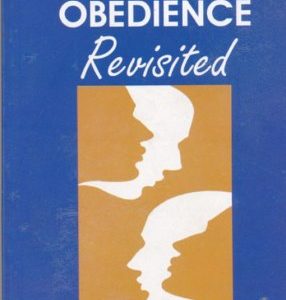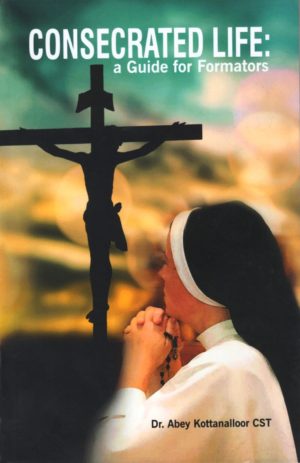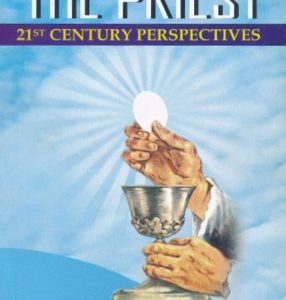Description
Let us know the Author Dr. Felix Podimattam OFM Cap.
Dr. Felix Podimattam is one of the best known Indian authors in the field of ethics and morality. He holds a Master’s degree in Political Science from the University of Mysore, a Licentiate degree in theology from Pontifical Gregorian University, Rome and a Doctoral degree in Moral Theology from the Alphonsian Academy, Rome. His doctoral thesis ‘The Relativity of Natural Law’ is acclaimed as exceptionally excellent. The thesis was guided by the eminent Moral Theologian, Bernard Haering, who influenced the renewal of Moral teachings of the Church during and after the Vatican II. Dr. Podimattam is resident professor at St. Francis Theological College, Kottayam and has been the founding member and first president of the Indian Moral Theologians Association. Most of his books, numbering over 120, are published by Media House, Delhi. Having gone through most of his books, let me highlight the most significant characteristics of his writings. First of all, he engages in a creative dialogue with other authors on every topic of discussion. Second, he tries to compare and integrate, as far as possible, the visions and views of other religions. Third, he holds a very positive attitude to life in general, especially to human body, sexuality, etc. Fourth, he is a keen observer of the socio-political and religious happenings in the society and responds to them immediately. His book on ‘Fast unto death’ during the upheaval of fisher people’s struggle in the eighties and his book on ‘Da Vinci Code’ a few years ago, where he gives a theological response to journalism with half-truths, are worth mentioning here. Fifth, he has taken keen interest on equal rights and dignity to women in the Church as well as in the society. In the context of widespread discrimination against women in the Church and society he published a six-volume work titled: ‘In praise of the woman’. Sixth, he holds on to the sacredness of life in all its forms and he has published books on topics like abortion, euthanasia, etc. Seventh, we find in his writings a harmonious blending of the traditional wisdom with its emphasis on fundamental Christian values as well as the findings of modern sciences like psychology, sociology, anthropology, etc, as well as the latest fruits of biblical exegesis.
The latest contribution of Dr. Podimattam, which may be acclaimed
The Making of a Masterpiece
The latest contribution of Dr. Podimattam, which may be acclaimed as his masterpiece, is: The Ten Commandments in the Law of Christ, a 20 volume work on the Decalogue. His vast knowledge on the subject gained through painstaking research, his teaching experience in various theological institutes stretching out over four decades and frank discussions with eminent thinkers have gone into this work. These books provide us with a re-interpretation of the commandments keeping in mind the genuine concerns of the people of God and at the same time remaining absolutely loyal to the teaching of Christ – “Christ did not come to abolish the law and the prophets, but to fulfil them”.
CONTENTS
INTRODUCTION
1. OLDER UNDERSTANDING OF CONSECRATED CELIBACY
1.1. Traditional Understanding of Vow of Chastity
1.2. An Evaluation of Traditional Understanding of Vow of Chastity
2. NEWER UNDERSTANDING OF VOW OF CHASTITY
2.1. Consecrated Celibacy as a State of Greater Love for God
2.1.1. Consecrated Celibacy as a State of Greater Freedom
2.1.2. Consecrated Celibacy as Existential Inability to Marry
2.1.3. Consecrated Celibacy as a Witness of Intimacy
2.1.4. Consecrated Celibacy as State of Special Bridehood of God
2.1.6. Support from the Bible
2.1.7. Support from the Magisterium
2.1.8. Support from the Virginity of Mary
2.1.9. Support from the Celibacy of St. Francis
2.1.10. Support from Consecrated Celibacy in the Early Church.
2.1.11. Support from Consecrated Celibacy in the Anglican Church
2.2.1. Human Universalism Has Its Source in God
2.2.2. Jesus’ Celibacy Signified a Universal Availability
2.2.3. Celibacy as a Higher Marriage
2.2.4. Celibacy as Call to Be Open to Relationship
2.2.5. Celibacy as Generativity
3.2.6. Celibacy as Complementary to Marriage.
2.2.7. Celibacy as a Charism
2.2.8. Celibacy as Living the Paschal Mystery
2.2.9. Celibacy as Facilitating Apostolic Activity and Pastoral Care
3. LIVING OF VOW OF CHASTITY
3.1. Living of Greater Love for God
3.2. Living of Greater Love for Human Beings
3.2.1. Greater Love for Enemies
3.2.3. Greater Love for Strangers
3.2.4. Greater Love for Acquaintances
3.2.6. Greater Love for Celibate Friends
3..2.6.1. Homosocial friendship
3.2.6.2. Heterosexual friendship
3.3. Living of Greater Love for Self
3.3.1. Love of My Sexuality.
3.3.2. Love of My Affectivity.
3.3.3. The Role of Physical Integrity of the Body
BIBLIOGRAPHY




Reviews
There are no reviews yet.